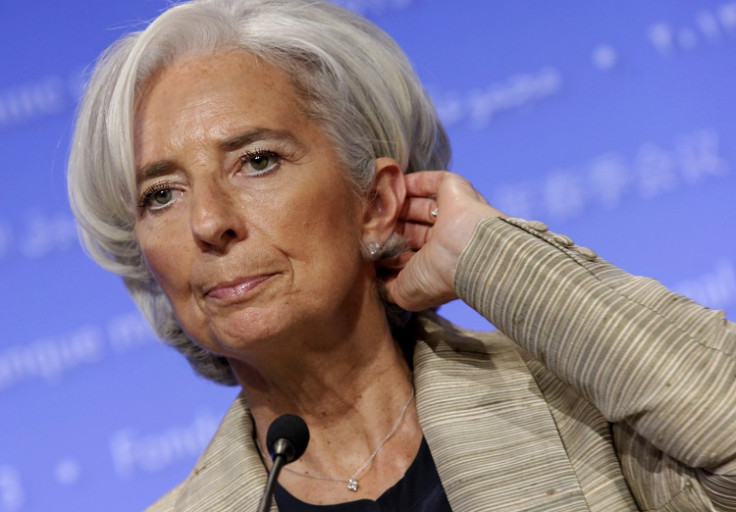Lagarde Says IMF Must Keep Helping Crisis-Hit Countries

Christine Lagarde, chief of the International Monetary Fund, said it must continue providing financial aid to nations still affected by fall out from the economic crisis - low growth and high unemployment.
She said the IMF must also reflect a shift in economic power away from its concentration in a few advanced nations.
"In the near future, the IMF will need to continue to help members deal with the consequences of the financial crisis, especially low growth and high unemployment," Lagarde wrote in the September issue of Finance & Development, an IMF publication.
"The IMF must be representative of, and mirror, these shifts (of power centres) in order to stay relevant. As an institution owned by 188 member countries, working for the benefit of 71.2 billion global citizens, the IMF's governance needs to remain representative and true to the principles set out in the Articles of Agreement."
Fiscal and Monetary Policy
Reducing the burden of public debt in a way that is attuned to the pace of growth is key with regard to fiscal policy while the challenge for monetary policy is to navigate the "new normal"—easing out of highly accommodative and unconventional support with minimal disruption, said Lagarde.
For the financial sector, the goal is to urge and support the completion of reforms to make the system safer, sounder, and more service oriented, she added.
Risks of Integration
The advance of information and communication technology will propel financial integration and deeper integration will fuel growth and feed risks, Lagarde wrote.
"Experience teaches us an important lesson: greater financial integration raises the probability and size of financial crises. That calls for sharpening the IMF's tools for crisis prevention and strengthening its support for crisis resolution."
Mitigate Income Inequality
Legarde also lamented the growing disparity between rich and poor.
"Over the past three decades, the richest 1% of the population increased its share of income in 24 of the 26 countries for which we have data. Across many advanced economies in particular, inequality is edging to levels last seen during the Gilded Age," Lagarde said.
Climate Change
Another major obstacle to sustainable growth and prosperity is climate change in the 21st century, Lagarde said.
"This has serious implications for growth and stability—and for the IMF. A big part of the solution relates to getting prices right—including the price of all externalities. This will help reduce the harm today and spur investment in the low-carbon technologies of tomorrow," she wrote in the article.
Participation of Women
Enabling women to participate more in labour markets will be another vitality for the global economy given there are so many threats to growth and stability from income inequality and environmental degradation, Lagarde said.
Enabling women to participate more in labour markets is especially pertinent as demographics evolve: bringing more women into the labour force will help counteract the slower growth that comes with population ageing, she said.
© Copyright IBTimes 2024. All rights reserved.






